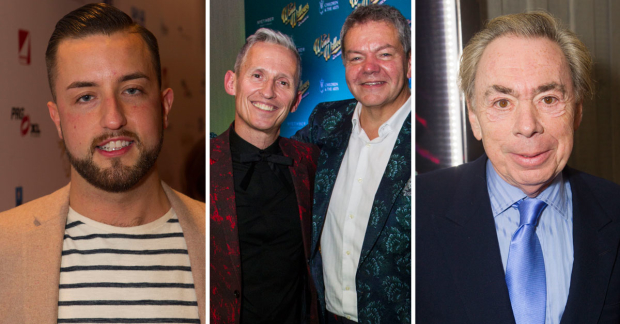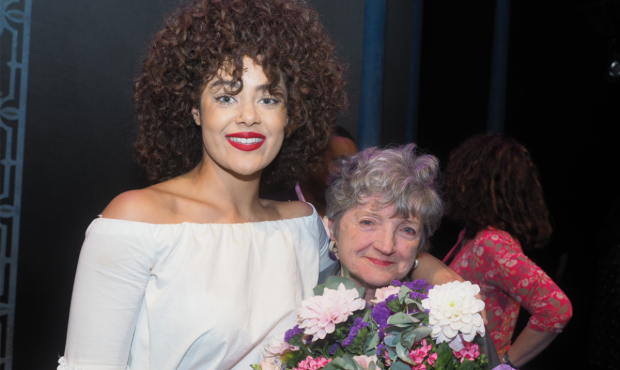Are we in a golden age of musical theatre development?

© Dan Wooller for WhatsOnStage
It takes a very long time to create a musical. Quite apart from the fact that they are rarely the work of one writer – there's a composer, lyricist and book writer to think of – once you've actually got the musical itself, you'll need a big singing cast, musicians and space in which to workshop it. A director I spoke to recently said 15 years from beginning to end wasn't an unrealistic estimate on how long it can take to get one on its feet.
Here in Britain, we're a few steps behind the US, where musical theatre is practically running in the veins of every theatregoer. They are proud of and enthusiastic about their musical theatre heritage. Over here, people tend to write-off musicals before they've even been to one ('Singing, dancing and acting: Oh no, not my thing').
It's very hard to spot anything on this side of the pond even remotely as exciting as, say, Hamilton or Dear Evan Hansen
And at the moment, you can see how that difference in attitude to musicals has affected what new work we have in this country. Look at Hamilton, Dear Evan Hansen, Come From Away and Natasha, Pierre and the Great Comet of 1812: it's very hard to spot anything on this side of the pond even remotely as exciting.
Could that all be slowly changing? I had lunch with Paul Taylor Mills at The Other Palace recently and just being in that new space reminded me that we now have something in this country which we haven't really had before: a dedicated creative hub for musicals.
The work being done at The Other Palace is genuinely exciting. Not only are they putting on workshops of musicals – both new and old such as Heathers, Bonnie and Clyde and the upcoming The Little Beasts – Taylor Mills, Andrew Lloyd Webber and their team are ensuring the space works as a networking venue too. The Creatives Connect nights (next one is 13 September) offers a chance to hook up with fellow creatives in the bar, to meet the theatre programmers, the Pitch Days (11 October) mean people can literally pitch 20 minutes of their new musical to Lloyd Webber and Taylor Mills.
The US has schemes which nurture emerging musical theatre artists, rather than offering them a pat on the head and a cheque
Recently, I spoke to George Stiles and Anthony Drewe who are working really closely with MMD – Mercury Musical Developments – on several schemes which are all about supporting emerging musical theatre talent. I wrote a blog about their industry sharing of a musical they are supporting – The Wicker Husband. In it, I questioned whether the general public shouldn't also be invited to these sorts of sharings.
Interestingly, Stiles and Drewe, whose The Wind in the Willows opened in the West End last night, have talked with MMD and are looking at the logistics of bringing in the general public to those sharings. I absolutely applaud that move and I think it can only lead to better musical theatre audiences and better musical theatre shows.
The US has a series of schemes which nurture and support emerging musical theatre artists, rather than simply offering them a pat on the head and a cheque. The MTI Stiles and Drewe Mentorship Award is modeled on America's ASCAP Awards. And, as I saw at the prize offering earlier this month, it is producing exciting results. This year's winner was Ben Glasstone, with an idea that really excited me. His proposed musical is called Reanimator and, as Stiles and Drewe said: "It has a wonderful zombie Michael Jackson "Thriller" aspect to the story."
As a fan of horror and also a fan of musical theatre, I was genuinely excited by the prospect of Reanimator. Having won the award, Glasstone will get his show developed over 12 months and will eventually receive a full workshop at The Other Palace. Glasstone could be one of the new musical voices of tomorrow, and the audience that watches the sharing could be the musical theatre audience of tomorrow. As Stiles and Drewe said: "It feels like there's a proper wave building and starting to crest. And that is exciting."











